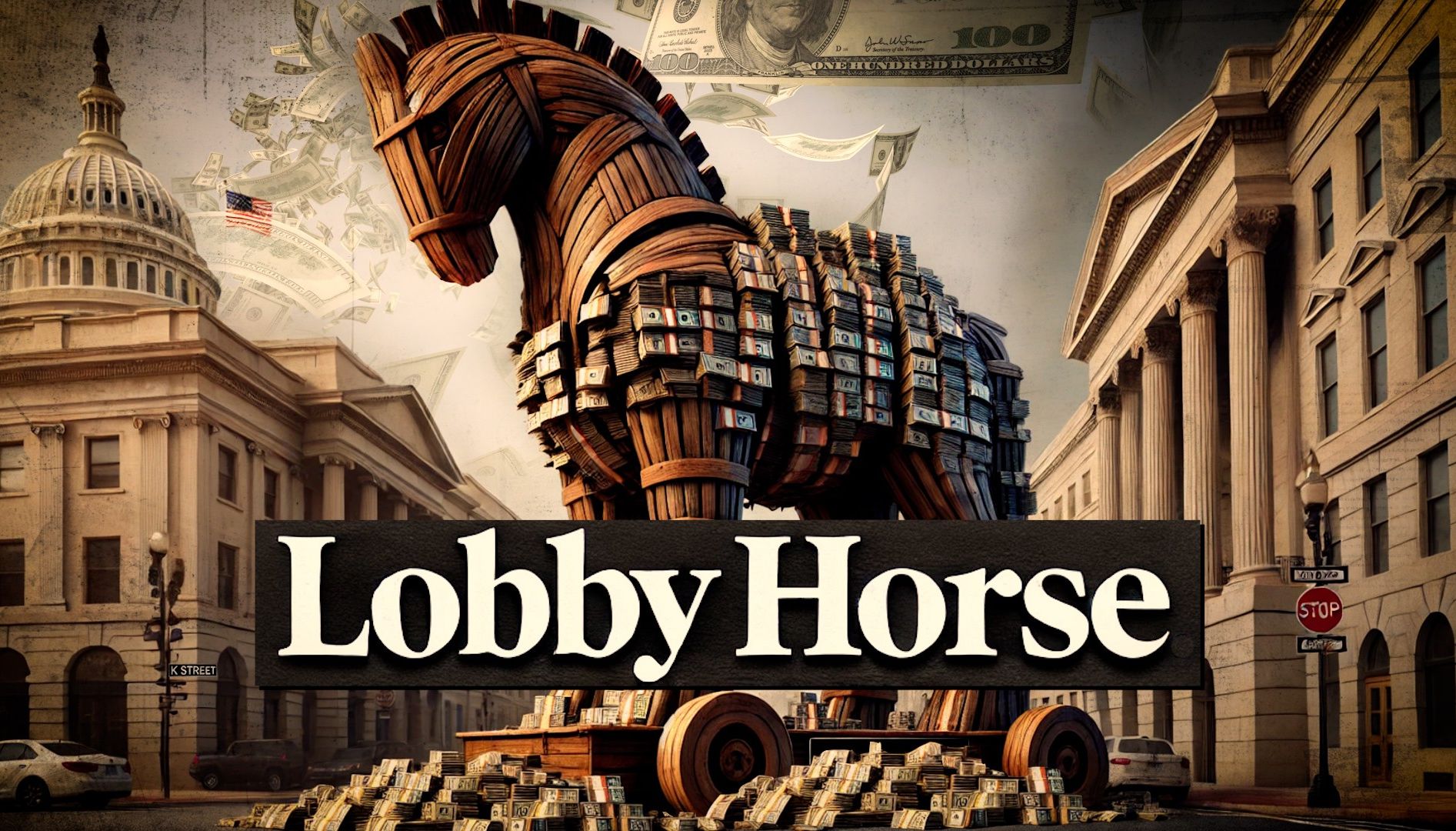“I don’t need anybody’s money…I’m not using the lobbyists. I’m not using the donors,” proudly proclaimed Donald Trump in his 2016 campaign for president that, like his other campaigns, was laced with disdain for how money drives politics in the U.S. He, of course, did take hundreds of millions of dollars in donor money (some of it from lobbyists) in his 2016, 2020, and 2024 campaigns.
And, he certainly wasn’t the only politician railing against the corrosive impact of money in politics. Sen. Bernie Sanders (I-Vt.) famously vowed to “get corporate money out of politics,” in his 2016 presidential campaign and regularly advertised that his average donation was just $27.
Rhetoric like this from Trump and Sanders works extraordinarily well because it strikes a nerve in an American public that really doesn’t trust its government and despises money’s corrupt influence on our politics.
The public’s trust in government is near all-time lows. Last year, the Pew Research Center found that just 23% of Americans trust the federal government to do what is right “just about always” or most of the time. That figure was 75% when Pew first began asking the question in 1958. These abysmal levels of trust in government are mirrored by enormous distrust of “experts.” Just 48% of respondents to a 2022 survey said that “public policy experts” were “valuable” to society. Why the skepticism of policy experts? According to the survey, the number one reason was “suspecting the expert may have a hidden agenda.”
Sadly, their suspicions are absolutely right. And, in few areas is the corrosive impact of money in politics more apparent than in U.S. foreign policy. D.C. has become awash in cash from special interests that profit from America’s endless wars. Campaign coffers are flooded with money from the arms industry, but that’s just the beginning. Many of the experts you see on TV, hear on the radio, or read in mainstream newspapers do, in fact, work at organizations that cash huge checks from Pentagon contractors and foreign governments that profit — financially or otherwise — from America’s military conflicts. Those media outlets themselves are often cashing checks from war profiteers who are all too eager to buy their ad space.
This elite-driven boondoggle is the reason why the Pentagon continues to invest billions of dollars in jets and ships that don’t work, why the U.S. is funneling arms to two-thirds of all current global conflicts, and why lawmakers spend their time auditioning as lobbyists instead of representing their constituents. Most importantly, the American people are paying more for national security every year and getting less of it.
I know all of this firsthand. It’s actually my job to know this. And, unfortunately, business is good. In just the last six months, I’ve documented how the lobbyists for foreign governments work to militarize U.S. foreign policy and how foreign policy think tanks — the employers of many of the experts the public has grown to distrust — are flooded with cash from foreign governments and Pentagon contractors. In short, it’s a target-rich environment for someone that investigates D.C.’s influence-peddling machine and — as much as I enjoy the gainful employment — that is a problem.
The public needs to understand the truth behind how U.S. foreign policy is actually being created. But, just knowing how the sausage is made doesn’t make it any easier to swallow. In fact, it can make it much harder and, ultimately, contribute to the crisis of confidence in government. Exposing corruption — both the illegal and perfectly legal varieties — is a necessary step, but it must be followed by actions that fix the broken system itself.
That is why we’re starting this column: the Lobby Horse. We’ll track the trojan horse that is the money behind U.S. foreign policy and, ultimately, work to stop it from leading us into the next endless war. We want readers to get the stories behind the stories in U.S. foreign policy so you can see in real-time how money is moving America’s foreign policy. We’ll be going behind the scenes of the latest money-in-politics scandals that are making headlines, while also doing deep dives into corruption investigations that mainstream media outlets all too often ignore. All this is with one goal in mind: to inform American people how U.S. foreign policy is actually being created and what we, together, can do to fix it.
If this sounds like your cup of tea, tune in every other Tuesday. The column will usually be written by me, but we’ll also have contributions from other Quincy Institute muckrakers, like Bill Hartung and Nick Cleveland-Stout.
Regardless of who has the pen that week, I’ll promise you this: you’ll see a side of foreign policy that you won’t see anywhere else. Buckle up, the Lobby Horse is going to be a wild ride.
- 'Acceptable' versus 'unacceptable' foreign meddling in US affairs ›
- The well-traveled road from member of Congress to foreign agent ›
- How corporate, foreign influence creeps into Congress ›
- Bipartisan 'Fighting Foreign Influence Act' targets think tank funding ›
- The top five foreign influence fails of 2024 ›
















